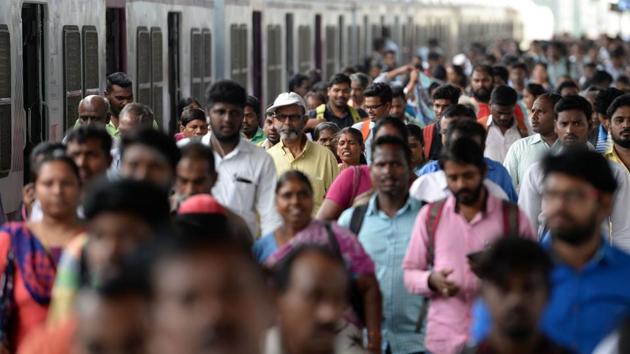Don’t impose controls to manage population
Instead of punishing people with the two-child policy, give them information and tools to make a choice
Like the proverbial bad penny, the two-child norm pops up every now and again, usually in the form of disincentives to stop people from having more than this number of children. It is, in fact, a favourite fallback position of governments when they want to show that they are doing something about tackling population, poverty and lack of resources.

The latest is the Assam government, which has decided to implement a policy passed two years ago to prevent anyone with more than two children from getting a government job starting 2021. Since we are in the midst of celebrating the Mahatma, it is significant that he did not support such “control”; rather, he supported the idea of abstinence, letting people make the choice for themselves.
The fact that we are still talking of control suggests that the family planning programme, which India began in 1951, has not been implemented as well as it should have been. For a long time, after the uniquely cruel manner in which Sanjay Gandhi imposed population-control measures on hapless people during the Emergency with disastrous political consequences, the issue became a political hot potato. You would have thought that politicians would shy away from any attempt to control populations, to enter an arena so private and sensitive. But the fears triggered by the coercive policies during the Emergency did not last. And we were back to the control concept, something which persists till today.
There is also a clear communal subtext to the issue, with many suggesting that thenorm is necessary since Muslims procreate at a much faster rate than Hindus and will, hence, overrun the country in the near future. This is of course off the mark. But for this or other reasons, various states have instituted restrictive measures ostensibly to keep the numbers down, despite the fact that we have a holistic and human rights-based National Population Policy.
Assam is not alone in imposing such quotas. Both Telangana and Andhra Pradesh do not allow a person with more than two children from contesting local elections. Maharashtra has this provision for the panchayat and municipal elections. The state also has a rule denying public distribution system benefits to women with more than two children.
Rajasthan disqualifies those with more than two children from contesting panchayat polls as does Gujarat, which extends this to municipalities and corporations. Bihar and Uttarakhand too bar those with more than two children from contesting the municipal polls.
But there is another model, which has delivered. Kerala has none of the restrictions, and yet fertility levels have fallen below replacement levels. Education, healthcare and choice of contraception have done the trick. As a well-known social scientist once told me, take care of people and the population will take care of itself.
Instead of all “controls”, India should be proud that despite all odds, fertility rates are going down. Only 12 states and Union territories have fertility rates higher than replacement levels.
We are very fond of comparing the dramatic results achieved by China with its stringent and often frightening implementation of the one-child norm. India’s national policy has been based on choice, access to medical care and reduction in maternal and infant mortality.
The problem is that we have not been able to implement the recommendations in the policy. These include the cafeteria approach to contraception— choice of reversible and irreversible contraception made available to couples or individuals. It is a different matter that public health centres, which should be dispensing these, along with providing the right kind of medical attention, are not doing so for lack of funds.
Along the way, as various governments have blundered from prescribing controls in the form of sterilisation, almost always for women, after two children, many myths have been busted.
One such myth is that the poor want to have more children so they have more earning power. This is wrong, it is simply that they do not know enough about reversible contraceptive methods or have no access to these.
The focus of the whole population debate has been on women from sterilisation to reproductive health workers. It is rare that men, who are almost always the decision-makers when it comes to family size, are involved in the debate on the merits of smaller, healthier families.
Many problems still remain, one being the preference for the male child, which means many women are forced to have several girls before the desired son arrives. Yet, despite all of this, fertility rates are declining. It is not for the state to provide either incentives or disincentives to regulate numbers.
No one should be punished for having the number of children they chose to have, instead they should be given the information needed to make an informed choice.
This debate is old hat in developed countries. It is a pity that worries about the population are still met with unacceptable solutions, in contravention of the government’s humane national population policy.
Population is not just about numbers. It is about people and their rights to have a family of the size they chose to.




